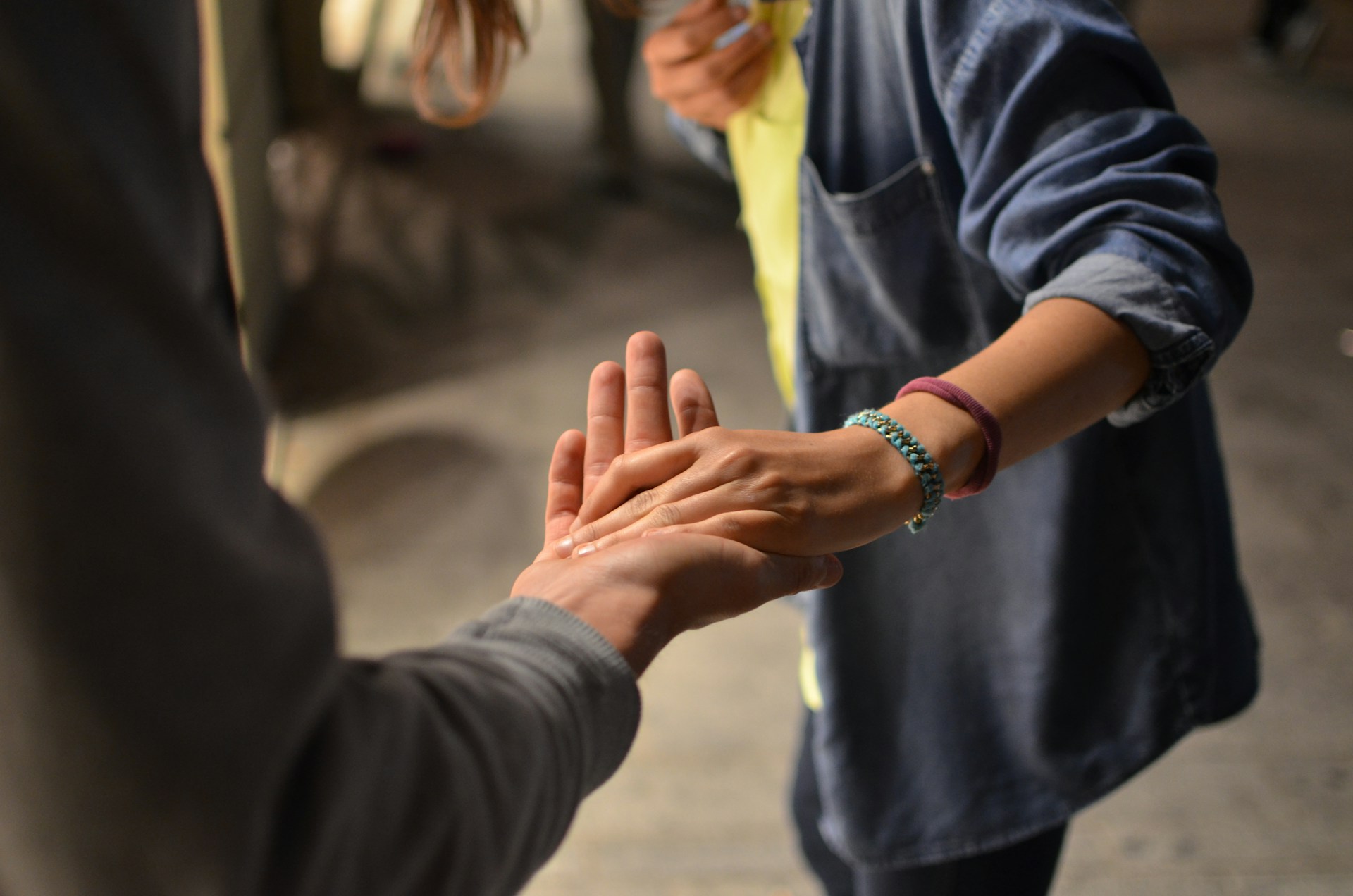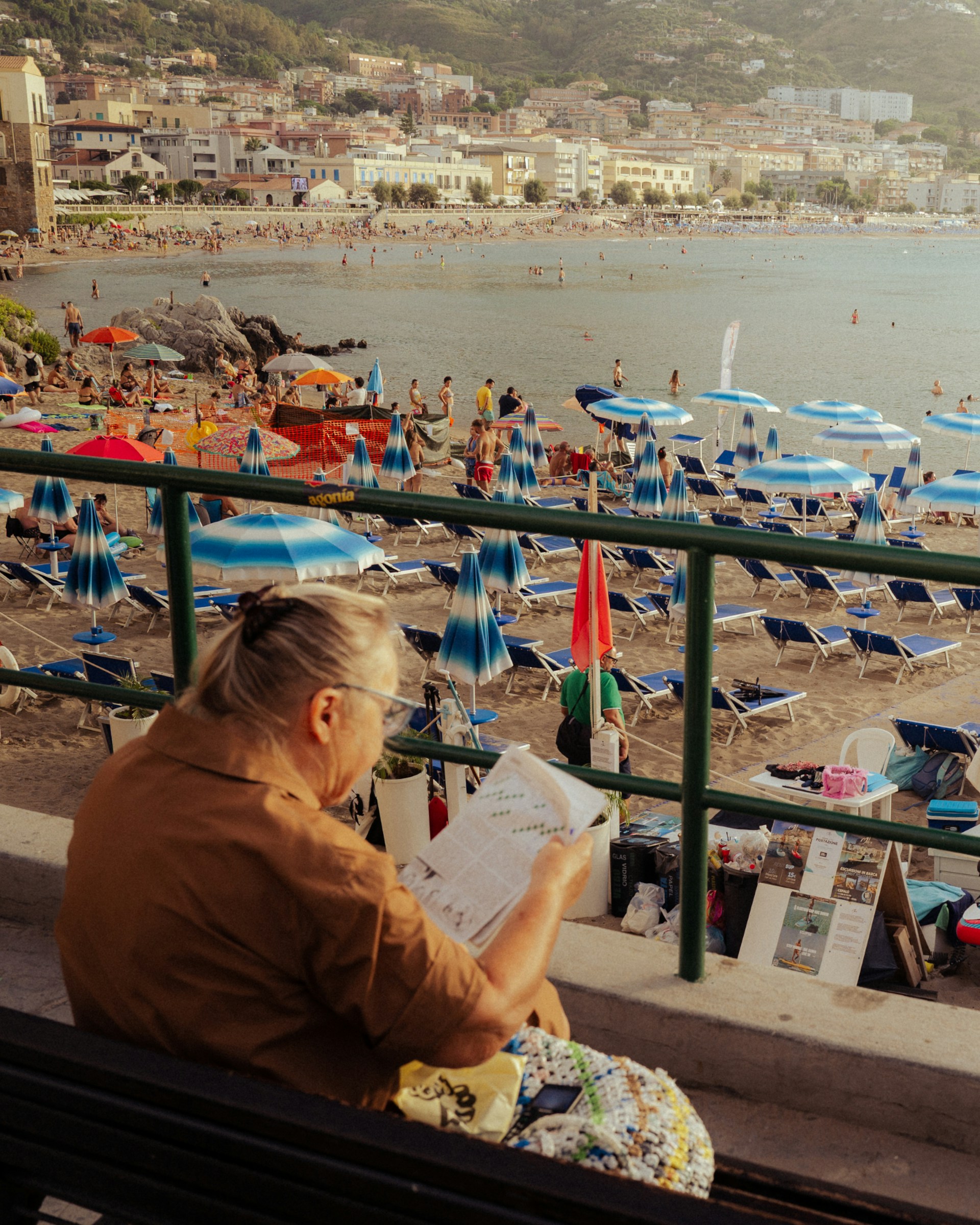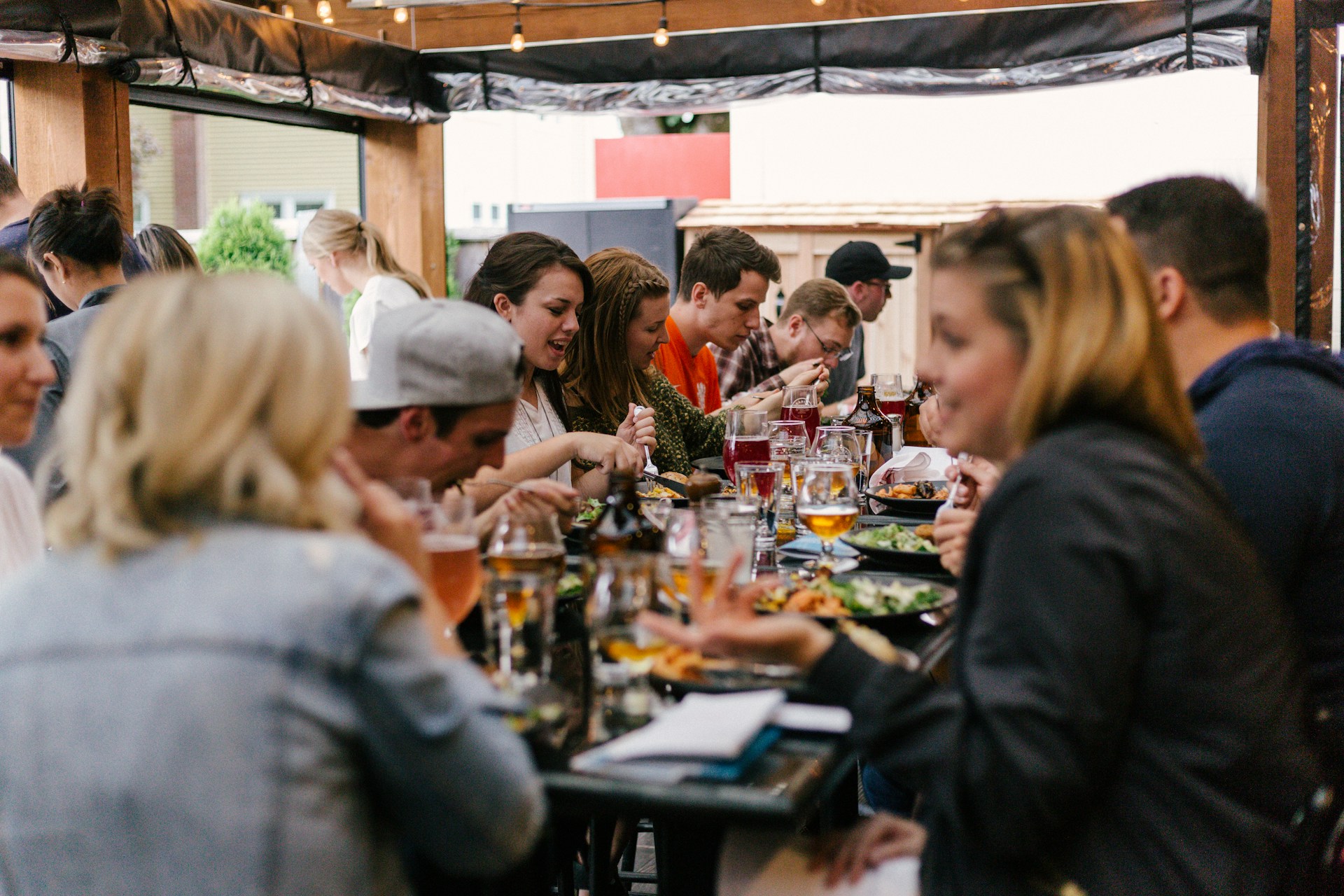
This article draws on twenty-six interviews conducted across thirteen countries, mostly in Europe, with people navigating the pressures of work, study, or family. We asked about how interviewees picture their lives and futures, both individually and in relation to others.
Across the interviews, people described the quiet pressures of trying to appear self-sufficient while depending on systems, networks, and people in ways that often stay invisible. Behind these stories lies a shared tension shaping both financial and emotional life: how to depend without losing dignity.
People wanted connection but feared the loss of control it seemed to bring.
What’s missing is a sense of us. Between home and the world, the everyday us has thinned. Without it, connection feels risky, and independence becomes the safer story to tell about oneself.
Key insights:
What we heard
- Independence is a moral expectation and performance. Standing alone signals competence; needing help risks embarrassment.
- Formal systems make dependence feel legitimate. Rules and contracts protect dignity but can also isolate.
- The imagination of help is asymmetrical. People love to help but are hesitant to ask for it or to receive it.
- The middle ground between private and planetary scales is difficult to imagine. The everyday us between home and the world is missing.
Ways forward:
What we may change
- Make dependence safe. Build systems and cultures that normalise asking as much as giving.
- Design for relationality. Use design to reintroduce shared space and time: moments, tools, and environments where care and cooperation can surface without shame.
- Rebuild the missing us. Design for everyday forms of interdependence, from neighbourhood trust to collective projects and shared rhythms, that hold personal and collective well-being together.
- Rethink (financial) well-being. Shift from a model of personal control and optimisation toward one of reciprocity, fairness, and mutual reliability.
This article shows how independence has become a fragile performance sustained by shrinking safety nets and moral pressure. It argues that financial and collective well–being cannot be rebuilt by discipline alone but through trust, time, and shared responsibility. Design, in this sense, is not only about products or services but about crafting the conditions where dependence can surface without shame, where being well is something we do together.
The performance of independence
“It’s much easier to borrow money from banks. Borrowing money from people, it’s actually a very humiliating thing.”
— Interviewee, Croatia
Behind this remark is a quiet wish: to depend without feeling exposed. Across the interviews, standing alone was described as the mark of a “proper adult”. One participant put it simply: “When I’m paying the bank, it’s business. When I owe my friend, it’s shame.” Formal systems like banks, contracts, and workplaces offered clear rules that made dependence seem acceptable. Help felt legitimate only when it came with paperwork.

Money often turned self-control into something visible. Savings, budgets, and repayments became proof that a person was responsible. Many preferred to pay interest to a bank rather than owe gratitude to someone they knew. It was a way to buy peace of mind. Managing money alone has come to mean being grown-up, a way to feel competent without having to ask. “When I handle my finances alone, I feel grown-up”, said a participant. In this sense, money is not only a tool of independence but the main stage where independent adulthood is performed.
The same expectations did not weigh on everyone equally. Cultural norms of independence were often experienced through gendered scripts. Many men described how asking for help conflicted with ideals of strength and autonomy: “As a man you have to make decisions on your own […] you have to be strong and do it without support”, said one participant. Many women, in turn, spoke of the pressure to hold everything together emotionally and practically while making it look easy.
“If a man gets angry, it’s normal; if a woman does, she’s hysterical”,
said one participant, while another added “I think women are just expected to manage at work, at home, everywhere without complaining”. Those living with illness or disability often carried the heaviest load. “After my knee surgery, I had to ask my father to lift me up the stairs. It was deeply uncomfortable. You feel useless”, one participant recalled. Across contexts, not everyone had the same space to show need. Some could ask for support and still be seen as capable; others couldn’t.
Sociologists such as Ulrich Beck and Michel Foucault have described how modern societies made risk and responsibility individual. The same pattern appeared in our interviews: people spoke of self-management, discipline, and control as tests of maturity. Independence was, of course, not only spoken in negative terms. Many celebrated being able to choose jobs, partners, or countries in ways their parents never could. “At least now we’re not trapped in one story”, said a German participant. But when every choice is personal, every outcome feels personal too.
Freedom easily turns into pressure.
As scholar Sarah Atkinson observes, contemporary understandings of well-being often reproduce this same logic of individualisation. Policies and self-help cultures promote what she calls a “hyper-individualised self”, a person constantly managing, optimising, and monitoring their own wellbeing as proof of competence. Well-being becomes another performance of self-control, sustained by what Atkinson terms a “supermarket model” of social relations, in which networks and communities are treated as resources to draw on rather than shared sites of mutual care. This helps explain why the people we interviewed found dependence more acceptable when formalised: help mediated through institutions aligns with a broader moral economy in which well-being itself is measured by autonomy, not relation.
Across Europe, collective supports have weakened. In many countries, pensions are projected to decline, and younger generations inherit insecurity as the new normal. Independence is no longer a preference but a survival strategy. In a globalised attention economy, images of success travel faster than the structures that could sustain them. Scrolling through others’ lives, several participants said, could feel like watching everyone else “figure it out”.
Independence, especially financial independence, has therefore become a moral expectation. Yet dependence hasn’t disappeared: it has just moved behind formal rules.
The moral balancing act of help

People didn’t deny relying on others, and many even acknowledge that that is necessary for well-being. “My dyslexia wasn’t recognised for years […] I never sought the help I needed. But later, I realised how much I actually needed it and that there are very helpful people who would support you”, said one participant. What mattered was how that reliance looked. Help felt acceptable when it followed a rule or procedure, but risky when it was personal. “Asking for help at work comes very easily”, said one participant. “Because it’s like a rule of that place […] there’s no emotion there or embarrassment. But I always hesitate in my private life.” Formal channels came with receipts and rules that softened emotion. Personal help did not.
For many, legitimacy came through visibility. The more official the proof the less shameful dependence felt. People were proud of achievements that institutions could recognise such as degrees or promotions.
Everyday acts of care, like looking after relatives or helping neighbours, rarely counted because they left no paper trail.
“I don’t think that any problem should stay within four walls”, said a Croatian participant. “There’s always someone else who can help you with advice, I mean a professional.”
What emerged in the interviews is a learned way of deciding when dependence is permissible and when it risks shame; it is a careful moral balancing act. Institutionalised or contractual help could be shown openly because it followed recognised procedures. Informal help had to be disguised or justified, contained within the boundaries of a system.
There was another dynamic that was also present. People loved to give help; it made them feel kind, competent, connected. But, they disliked asking for it. This moral asymmetry was striking: help gave life purpose, but this purpose only travelled one way.
This imbalance turned help into a test of dignity. “It was awful asking for help”, said one participant. “Most of the time, I didn’t even ask […] I felt like a complete failure”. Others recognised the same rule in quieter form: “You learn from an early age that you have to handle everything on your own so that you don’t burden others.”
In both giving and withholding help, people rehearsed what independence should look like: composure, control, and visible self-reliance. The tension between wanting connection and fearing judgment ran through every context. Participants spoke lucidly about these contradictions. Their reflections weren’t just anecdotes but analyses in their own right: lived theories about how to stay dignified. They are experts of their own lives, performing constant acts of moral repair to balance autonomy and care.
The missing us
Across interviews, many spoke of what lies between the individual and the world. For many, the word community was associated with their families and close friends. That is to say, community had a boundary within a private sphere that they could control. A few longed for a sense of community that was broader, yet hesitated to join one. Time felt scarce and commitment felt like another task. One participant said, “I’m not someone who easily fits into a broader community […] I mostly keep a bit of distance.”

In some post-communist countries, the word community itself carried mixed feelings. Participants described it as something once tied to solidarity but now shadowed by memories of control or hypocrisy.
“Community should be natural, not imposed […] I don’t want to be part of something that’s fake”,
said one interviewee. People could imagine belonging today, but wanted it lighter, voluntary, and more flexible.
When asked about the future, people’s imaginations often jumped between two scales: the private composed of partners, children, and close friends on one hand, and the planetary, characterised by war, climate, and economic crisis on the other. The space between, the social everyday us, was harder to picture. “When you live through a global crisis, you really see how connected everything is […] What someone does on the other side of the world can absolutely impact us”, said one participant, linking private life to distant events but not to nearby publics. The us in the middle is missing.
Several noticed this loss of the in-between. “I think we’ve lost that sense of shared responsibility […] especially toward the most vulnerable groups”, one woman reflected. When official structures weaken, other networks fill the gap, sometimes in corrosive ways. Online movements, grievance forums, and conspiracy groups all feed on the same hunger for recognition and belonging.
Sociologist Barbara Adam argues that modern societies organise life around ever-shorter timeframes. Technological speed, flexible labour, and 24-hour economies compress our sense of time, narrowing attention to the immediate and making long, shared horizons difficult to sustain. Struggling to keep up, action becomes continuous adaptation and we lose what sociologist Hartmut Rosa calls resonance: the feeling that our actions still echo meaningfully in the world and that the world responds. The result is a quieter form of alienation, where life keeps moving but rarely connects. Educational and social futures researcher Keri Facer characterises this as the decay of imagination infrastructures. When public institution and shared rituals that once linked private lives to collective futures weaken, personal time and collective time fall out of sync, and it becomes harder to imagine or build a common horizon at all.
Without spaces that connect personal time to collective time, the imagination of common life narrows. People act at home and worry about the world, but little holds the two together. And in these cracks, polarisation thrives.
Rebuilding the missing us

If the space between the private and the public has become more difficult to imagine, rebuilding it means rethinking what we call community and the individual. People didn’t reject connection; they worried about its terms. As one participant put it, “Sometimes it can be overwhelming when someone expresses that desire for togetherness too strongly.” Many wanted closeness without pressure, belonging without losing independence. The goal, then, is not to bring back old forms of collectivism but to design conditions where dependence feels safe, voluntary, and light.
Reimagining this middle layer between the private and the planetary is also about changing the stories that surround help and independence.
Cultural ideas about self-reliance and success shape how people understand vulnerability long before any policy does. Shifting those stories from help as weakness to help as participation can create the moral and imaginative room for new kinds of belonging that feel both credible and desirable. “It took me a while in my own life to understand that I’m not alone and that it’s okay to ask for help”, said a participant. “That realization is what builds community.”
Feminist economist Emma Holten reminds us that our societies still struggle to see care as value. We count productivity, but not the everyday effort of looking after one another. This leaves both care and dependence misnamed as deficits. Rebuilding the middle us means changing that story, recognising care as contribution and support as strength. Design can help make this shift real, by creating systems that show care, trust, and mutual help as part of what keeps communities and economies alive.
To redefine the middle us is also to rethink the self.
The independent person of these interviews was not someone who rejected others, but someone who measured dignity by fairness and reciprocity. They wanted control, but not isolation; composure, but not detachment. In their words and silences, an image of the individual emerges as someone who stands alone, yet stays open to the steady presence of others.
Conclusion
Across these stories, money appeared as both a mirror and a measure of independence. It offered control and dignity, yet often deepened isolation. People trusted formal systems like banks, contracts, and institutions because they made dependence feel legitimate. But behind every transaction ran a quieter wish: to depend without shame, to know that support need not erase autonomy.
That wish extended beyond money.
Whether in workplaces, friendships, or families, people described the same balancing act: wanting closeness without pressure, help without judgment.
What was missing was not care itself but the conditions that made it feel safe to ask. Financial well-being, like social well-being, is not just a matter of resources or planning; it is built on trust, time, and reciprocity.
Design can help by creating conditions for relating to one another. It can become the method of reintroducing social space and time by crafting situations where dependence can surface without shame. This might mean systems that make mutual care easier to practise, institutions that value interdependence, or stories that remind us that being well is a shared project.
To look toward a shared future is to find dignity not in independence itself, but in how we care for and rely on one another.
